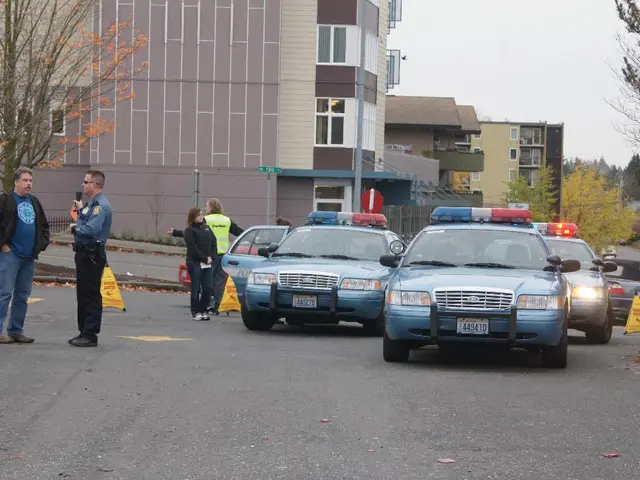Military Personnel Lost Life in Firefight Along Line of Control During Infiltration Attempt Supported by Pakistan in Uri Region
The India-Pakistan border has remained tense since an infiltration attempt in the Uri sector on August 12, 2025. This incident, which resulted in the death of an Indian soldier, marked a continuation of the volatile situation that escalated earlier in the year following a terrorist attack in Pahalgam in April 2025.
The infiltration attempt turned into a gun battle between the two sides, with Indian troops retaliating and triggering an exchange of fire. The Pakistani Army's tactic of supporting infiltrations is often linked to their Border Action Teams. The latest incident on the Line of Control (LoC) is the first major incident since the uneasy calm following Operation Sindoor, India's counterstrike after the Pahalgam terror attack.
Following the Uri incident, Pakistan launched drone attacks along India's western border in response to India's airstrikes. However, no major new military escalations have been reported as of August 22, 2025. The ceasefire agreed upon in May 2025, mediated in part by international actors including the US, holds but has not resolved the underlying conflict.
The situation remains fragile with ongoing mistrust and a perpetual atmosphere of hostility on both sides of the LoC. Experts warn that further confrontations could occur in the weeks or months ahead due to the entrenched animosity, the presence of non-state militant actors, and lack of productive dialogue between the two governments.
India continues to take a firm stance on its national security policies, including a strengthened military doctrine announced before the May conflict, which lacks geographic restrictions for retaliation and could increase risks of broader escalation. Diplomatic efforts remain limited amid the regional rivalry, domestic political dynamics, and competing geopolitical interests involving external powers such as the US and China.
The death of the Indian soldier was not a routine incident and received firing support from Pakistan Army positions. The Ministry of External Affairs in India denounced remarks by Pakistan's Army Chief Field Marshal Asim Munir, who threatened to "take down half the world" if Pakistan faced an existential threat in a future war with India, as "nuclear sabre-rattling". The international community was urged to draw its own conclusions on the irresponsibility inherent in such remarks.
As of now, an official statement from the Pakistani Army regarding the incident is awaited. Prime Minister Modi has stated that Indian Tech and the 'Make in India' initiative played a significant role in the success of Operation Sindoor, but this fact is not directly related to the current incident.
The ongoing tensions serve as a stark reminder of the unresolved conflict between India and Pakistan, with both nations maintaining a heightened alertness and unresolved mistrust but no large-scale military engagement as yet. The broader conflict cycle initiated earlier this year has not been fully resolved, and the situation remains volatile with the potential for renewed clashes.
- The volatile situation along the India-Pakistan border, marked by incidents like the Uri infiltration attempt in August 2025, is not confined to sports or general news; it also involves war-and-conflicts, policy-and-legislation, and politics.
- The education sector, seemingly unrelated to the India-Pakistan border situation, could potentially be impacted if the ongoing tensions escalate, causing disruptions in student exchange programs and collaborative projects.
- The healthcare system on both sides might face challenges due to the increased military preparedness and possible escalation of conflicts, affecting the general well-being of citizens in the region.
- Crime-and-justice is another area that could be influenced by the India-Pakistan border tensions, as increased hostility might lead to an uptick in cybercrimes related to misinformation or propaganda, potentially instigating further mistrust.







